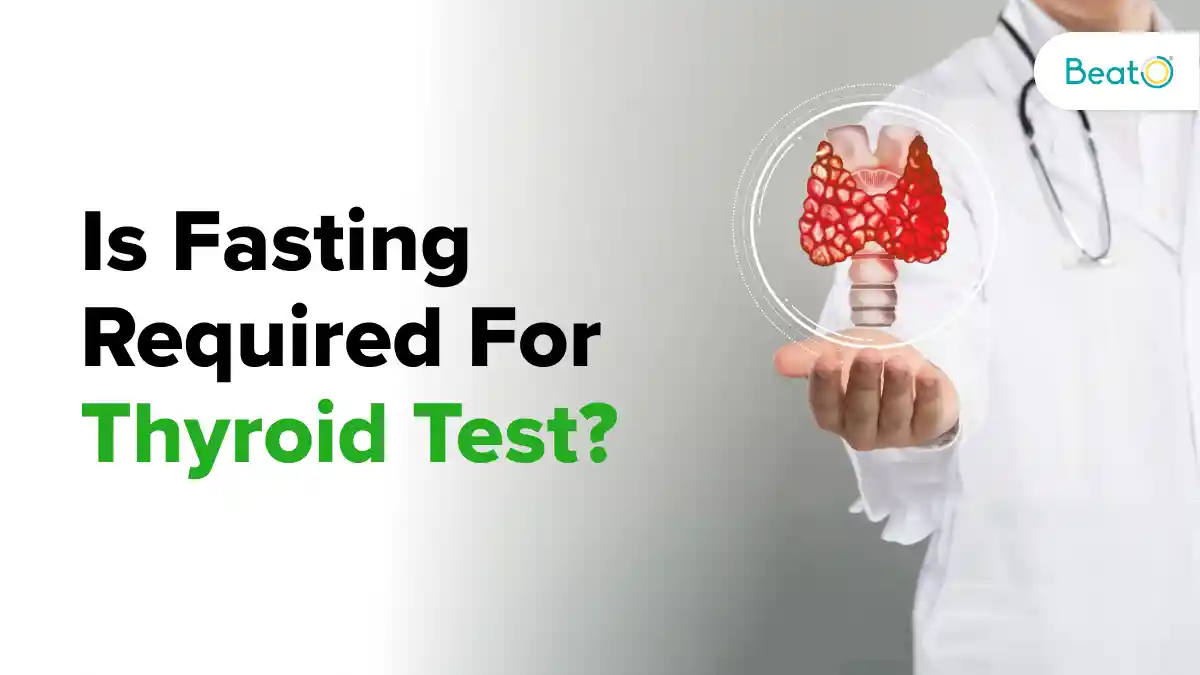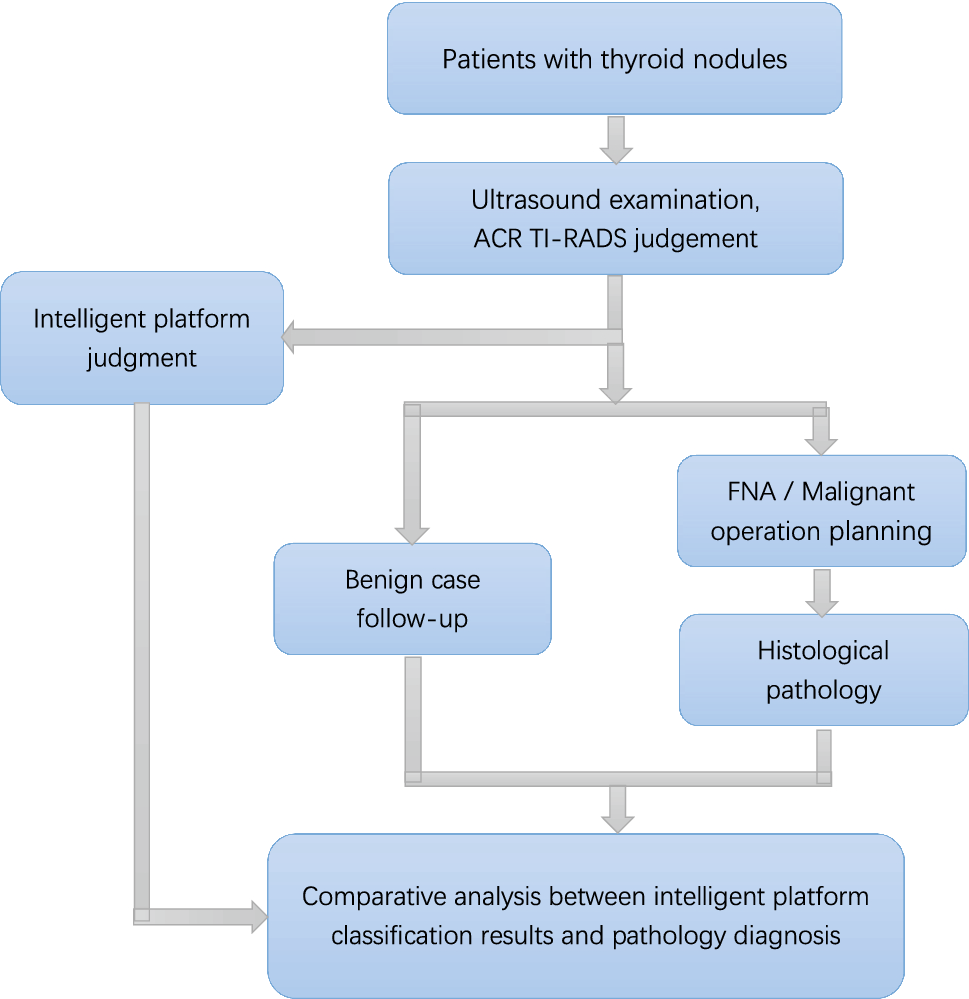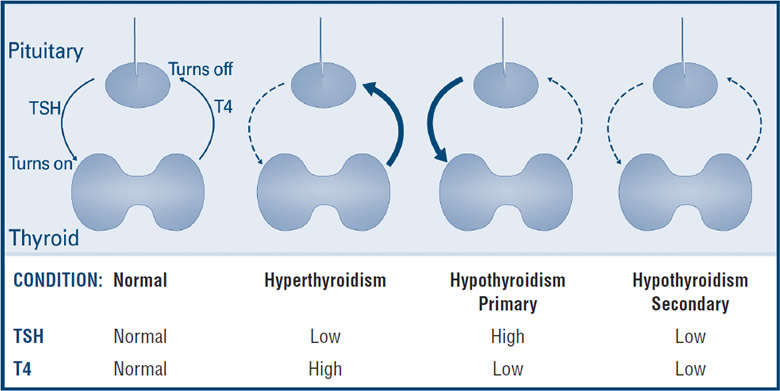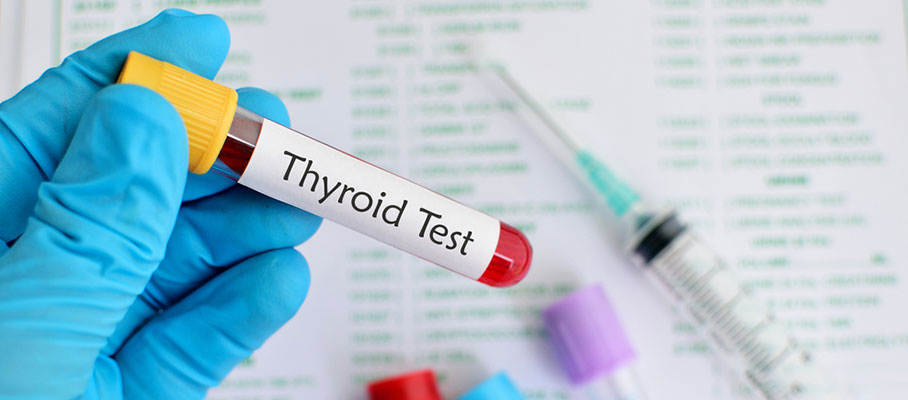Is Fasting Required for Thyroid Test? ENT’s Simple Answer for Patients
Should You Fast Before a Thyroid Test?
The thyroid gland, which is located at the front of your neck, aids in regulating your metabolism. Thyroid illness may be indicated by an imbalance in the thyroid hormone production of this gland.
Although there are some imaging procedures that can be used to identify these illnesses, healthcare professionals typically use a blood test to assess thyroid function.
Before a thyroid function test, it is not necessary to fast or refrain from eating unless a medical practitioner advises it.
This piece will discuss the reasons why you might require a thyroid test and the specific steps you may need to take in advance, such as fasting.


What does a thyroid test entail?
The thyroid test is a straightforward blood test that may be performed in a lab or at your doctor’s office.
Before undergoing your thyroid test, you don’t need to fast or take any other specific precautions.
However, recent research
Dependable Source
According to the study, the time of day, the timing of meals, and the interval between meals can all influence TSH levels. When it comes to testing, healthcare professionals may need to take this into account.
Scheduling frequent thyroid checks at the same time of day can produce superior outcomes if necessary.
Though fasting is not required by any formal thyroid test regulations, it may be a component of your overall blood test preparation if you are having other blood work done in conjunction with thyroid blood tests.
Before your thyroid test, make sure to consult a medical expert for any unique directions.
Some tests need fasting for what reason?
Prior to some blood tests, you must abstain from eating for a specified period of time. This will ensure that your findings are more precise and unaffected by any recent meals.
Some elements of your blood, like blood sugar, fluctuate between meals and times of fasting. Among the blood tests that require fasting are blood glucose tests, cholesterol, and lipid tests.
The outcome of these tests might be impacted by certain food types or any meal in general.
Fasting may be necessary for additional forms of medical testing, but you will receive precise instructions from a healthcare provider if this is the case.
When should you have your thyroid checked?
Not every thorough health exam includes thyroid testing, but you can ask for it if you feel you need it.
Thyroid tests are often ordered by healthcare providers if you have a family history of thyroid problems or if you exhibit symptoms that are typical of thyroid illnesses.
The two most prevalent thyroid illnesses are an underactive thyroid gland (hypothyroidism) and an overactive thyroid gland (hyperthyroidism).
If you are experiencing any of the following, you may want to consider requesting a thyroid test:
- exhaustion (lack of energy)
- unexplained fluctuations in weight
- pain and weakness in the joints or muscles
- temperature sensitivities (either hot or cold)
- hair thinning
- despondence
- irritability or anxiety
- a goiter is an enlarged section of your neck.
Although the symptoms of thyroid disease might overlap with those of other illnesses, a thyroid test can determine whether or not your thyroid gland is the source of these problems.
What does a thyroid exam assess?
Thyroid tests determine the functionality of your thyroid gland.
The specific hormones that your thyroid gland produces are measured by blood tests:
Thyroid-stimulating hormone (TSH): Typically, this is the first test a doctor will request. The normal range for TSH is 0.5–5 mU/L, but this might change depending on age, gender, and point in life.
The majority of the time, healthcare professionals use a T3 test to identify hyperthyroidism. The quantity of the hormone triiodothyronine is determined by it. If T4 levels are greater than average, they may prescribe this test.
The amount of thyroxine in your body is measured by the T4 test. An excess or deficiency of thyroid hormone may be a sign of thyroid illness.
At the end of the day
A blood sample is used for thyroid testing in order to determine the amounts of thyroid hormone produced by the thyroid gland. These hormones aid in the control of metabolism and growth, and an excess or deficiency might indicate a thyroid issue.
While a healthcare practitioner may advise you to fast for thyroid function tests, or if you need other blood work done at the same time, fasting is not necessary.
If any patient of ENT requires any surgery, opd consultation or online consultation in clinic of ENT specialist Doctor Dr Sagar Rajkuwar ,he may contact him at the following address-
Prabha ENT clinic, plot no 345,Saigram colony, opposite Indoline furniture Ambad link road, Ambad ,1 km from Pathardi phata Nashik ,422010, Maharashtra, India-Dr Sagar Rajkuwar (MS-ENT), Cell no- 7387590194 , 9892596635
Issued in public interest by –
Related FAQs
Is Fasting Required for Thyroid Test?
Typically, no specific precautions such as fasting are necessary before undergoing a thyroid test. However, your pathologist can provide better guidance. For instance, if you need to have additional health tests alongside thyroid hormone levels, you may be instructed to fast for 8-10 hours. Drinking water does not violate fasting guidelines.
Should I Take Thyroid Tablets Before Thyroid Test?
If you are taking medication for thyroid conditions (thyroxine) to manage your thyroid disease, it is advisable that your blood sample be collected before you take your dose for that day. Take your medication after the TSH test. Always consult your doctor for such advice since they are most familiar with your health situation and might suggest otherwise.
Is There Any Common Medicine That Interferes With Thyroid Function Tests?
Biotin (Vitamin B7) is a commonly used over-the-counter supplement that can cause some irregularities in your thyroid function tests even when the actual values are normal. Refrain from taking biotin for 2 days prior to a thyroid function test.
Normal Reference Range for Thyroid Function Tests?
Reference ranges for each thyroid hormone value do not remain consistent for everyone. They vary based on certain factors such as age, health status, and the laboratory that conducts the testing.
Common reference ranges for the thyroid panel are listed below:
- TSH: 0. 4 to 4. 5 mIU/L (may reach as high as 7. 5 mU/L in individuals aged 70 years)
- Free T4: Typically ranges between 0. 8 and 1. 5 ng/dL in adults.
- Total T3: 75 to 195 ng/dL (1. 1 to 3 nmol/L)
Examine your TSH test report or consult your doctor for the normal/reference range. Most laboratory reports will indicate the reference ranges applicable to your thyroid test; however, seek an expert’s interpretation of the results. Also, because it is a panel test, values are generally assessed together and not regarded as individual figures.
What Should I Take Care of After Getting Tested for Thyroid Hormones?
After the blood sample for the thyroid test is taken, you may resume normal activities, including driving. A simple guideline to follow is to avoid vigorous activity with the arm from which the sample was drawn for a few hours post-TSH test. If you encounter any pain or bleeding, apply (and do not rub) ice packs.
Can I Take Thyroid Tests During Pregnancy?
Yes, you may if it is necessary. In fact, it is quite common to experience thyroid changes during pregnancy. Overactive thyroid impacts approximately one in every 500 pregnancies, while underactive thyroid occurs in about one in every 250 pregnancies.If you have an existing thyroid issue or develop one while pregnant, your physician will keep track of your condition and request blood tests as well. It is probable that your thyroid hormone levels will be evaluated every 4 to 6 weeks during the initial stage of your pregnancy, and at least once after the 30-week mark.
A thyroid panel examination can assist in detecting different conditions such as hypothyroidism, hyperthyroidism, Graves’ disease, and thyroid cancer. For all your laboratory testing requirements, go to Metropolis.
The conclusion
A blood sample is used in thyroid testing to measure hormone levels produced by the thyroid gland. Excessively high or low levels of these hormones, which assist in the control of growth and metabolism, may indicate a thyroid problem.
Is a thyroid test done in an empty stomach?
No, fasting is typically not necessary for a thyroid test. However, some physicians might suggest fasting for 8-12 hours, particularly if you’re also undergoing other blood tests that require fasting. It’s always advisable to consult with your healthcare provider for specific guidance.
Here’s a more detailed clarification:
Typically not required:
Thyroid tests, such as TSH, T4, and T3, can generally be conducted regardless of whether you’ve had food.
When fasting may be recommended:
If you’re undergoing other blood tests that need fasting, or if your doctor explicitly asks for it, you should fast before your thyroid test as well.
Fasting and medication:
If you are on thyroid medication, it’s usually advised to take it at the same time daily, irrespective of whether you’re fasting for a thyroid test.
Accurate results:
While fasting is not always essential, it can sometimes yield more precise results, particularly for certain hormone evaluations.
For update on further important health related topics and frequently asked questions on health topics by general population please click on the link given below to join our WhatsApp group –
https://chat.whatsapp.com/Lv3NbcguOBS5ow6X9DpMMA
Issued in public interest by –
Thyroid Ultrasound
What is a thyroid ultrasound?
Utilizing sound waves to produce pictures of the inside of your body, an ultrasound is a painless operation. During pregnancy, your doctor will frequently use an ultrasound to generate pictures of the fetus.
A thyroid ultrasound is used to look for any thyroid problems, such as:
- cysts
- nodules
- tumors


Applications of thyroid ultrasound
If a thyroid function test is abnormal or if your doctor discovers a mass on your thyroid during a neck inspection, a thyroid ultrasound may be prescribed. The thyroid gland can also be examined by an ultrasound for hyperactivity or underactivity.
As part of a full physical examination, a thyroid ultrasound could be performed. Ultrasounds produce high-resolution images of your organs, which can aid your physician in gaining a deeper understanding of your overall health. If your doctor suspects any underlying disorders that might be causing these symptoms, they may also request an ultrasound to look for unusual swelling, discomfort, or infections.
If your doctor needs to conduct a biopsy of your thyroid or nearby tissue to check for any underlying disorders, ultrasounds may also be used.
How to get ready for an ultrasound
You’ll probably have an ultrasound at a hospital. Additionally, ultrasounds may be performed in an increasing number of outpatient clinics.
Take off any jewelry and other items that could restrict your throat before the exam. You will be requested to lie on your back and take off your shirt when you arrive.
To enhance the quality of the ultrasound images, your physician may recommend injecting contrast media into your bloodstream. Typically, a rapid injection is administered using a needle loaded with substances like Levovist or Lumason, which are composed of gas and minute bubbles.
The Process
To tilt your head back and expose your throat, the ultrasound technician puts a cushion or pad beneath the back of your neck. It’s possible that you find this posture unpleasant, but it’s not often painful. During an ultrasound, it may be possible for you to sit upright in certain instances.
After that, the technician will apply gel to your neck, which facilitates the ultrasound probe, or transducer, moving over your skin. The gel may feel a bit chilly at first application, but it warms up when it comes into touch with your skin.
The technician will move the transducer back and forth over the area of your thyroid. It shouldn’t hurt. If you feel any pain, contact your technician.
The radiologist will be able to see images on a screen that are used to confirm that he has a clear understanding of your thyroid for assessment. Don’t expect technicians to interpret or diagnose ultrasound findings since they are not permitted to.
The images will be reviewed by a radiologist and your doctor. You’ll get the results in a few days.
There are no hazards related to thyroid ultrasounds. You’ll be able to resume your regular routine as soon as it’s finished.
What role does a thyroid ultrasound play in diagnosis?


A ultrasound may provide your doctor with a wealth of useful data, including:
- if a growth is solid or full of fluid
- the amount of growth
- the location of the tumors
- whether a growth has clear boundaries
- the growth’s blood supply
Ultrasounds can also identify a goiter, which is a thyroid gland enlargement.
Comprehending the outcomes of a thyroid ultrasound
Typically, your doctor examines the findings of an ultrasound before discussing any potential follow-up tests or problems that the ultrasound may suggest. Images of nodules that may or may not be cancerous or have microcalcifications, which are frequently linked to cancer, may be seen on your ultrasound in some cases. However, one study Trusted Source discovered cancer in just one out of 111 ultrasound scans, and more than half of the individuals with thyroid nodule-positive results did not have the disease. The majority of tiny nodules are not cancerous.
How much does a thyroid ultrasound cost?
The price of your ultrasound will vary depending on the healthcare practitioner. You may not be charged anything for the surgery by certain providers. Other providers may charge you anywhere from $100 to $1000, plus a co-pay for the cost of an office appointment.
The price of the ultrasound may also depend on the kind you receive. Because of the greater level of detail that newer ultrasound technologies, such as three-dimensional (3D) ultrasounds or Doppler ultrasounds, can provide, they may be more expensive.
After a thyroid ultrasound, follow-up.
The ultrasound findings determine the course of treatment. A biopsy of a questionable lump might be ordered by your physician. A fine needle aspiration may also be used for further diagnosis. In order to check for cancer, your doctor will use a long, thin needle to extract fluid from a thyroid cyst during this process.
If the ultrasound reveals no abnormalities, you might not require any more treatment. When you come back for your physical exam, you will probably need to get ready for the thyroid ultrasound once more if your physician does it as part of the test. Additionally, if you have a family history of thyroid abnormalities or associated diseases, your doctor may advise you to get thyroid ultrasounds more often in order to identify any signs of a thyroid-related illness in its early stages.
Your doctor may recommend further testing to identify the possible causes of these abnormalities if your ultrasound shows them. You may need a different kind of ultrasound or another ultrasound in these cases to better inspect your thyroid. Your doctor might advise surgery to remove a cyst, nodule, or tumor, or other treatment for any underlying disease or malignancy.
Ultrasounds are painless, quick, and can aid in the detection of illnesses or early cancer stages. Speak with your doctor to begin preventative ultrasound treatment if you have reason to suspect a family history of thyroid problems or are worried about a potential thyroid ailment.
FOR INFORMATION IN GREAT DETAIL ON Can A Thyroid Patient Donate Blood? PL CLICK ON THE LINK GIVEN BELOW-It Is Always Better To View Links From Laptop/Desktop Rather Than Mobile Phone As They May Not Be Seen From Mobile Phone. ,In Case Of Technical Difficulties You Need To Copy Paste This Link In Google Search. In Case If You Are Viewing This Blog From Mobile Phone You Need To Click On The Three Dots On The Right Upper Corner Of Your Mobile Screen And ENABLE DESKTOP VERSION.
FOR INFORMATION IN GREAT DETAIL ON Life after thyroid cancer surgery PL CLICK ON THE LINK GIVEN BELOW-It Is Always Better To View Links From Laptop/Desktop Rather Than Mobile Phone As They May Not Be Seen From Mobile Phone. ,In Case Of Technical Difficulties You Need To Copy Paste This Link In Google Search. In Case If You Are Viewing This Blog From Mobile Phone You Need To Click On The Three Dots On The Right Upper Corner Of Your Mobile Screen And ENABLE DESKTOP VERSION.
FOR INFORMATION IN GREAT DETAIL ON How long recovery from thyroid surgery? PL CLICK ON THE LINK GIVEN BELOW-It Is Always Better To View Links From Laptop/Desktop Rather Than Mobile Phone As They May Not Be Seen From Mobile Phone. ,In Case Of Technical Difficulties You Need To Copy Paste This Link In Google Search. In Case If You Are Viewing This Blog From Mobile Phone You Need To Click On The Three Dots On The Right Upper Corner Of Your Mobile Screen And ENABLE DESKTOP VERSION.
If Any Patient of ENT Requires Any Surgery, Opd Consultation Or Online Consultation In Clinic of ENT Specialist Doctor Dr. Sagar Rajkuwar ,He May Contact Him At The Following Address-
Prabha ENT Clinic, Plot no 345,Saigram Colony, Opposite Indoline Furniture Ambad Link Road ,Ambad ,1 km From Pathardi Phata Nashik ,422010 ,Maharashtra, India-Dr. Sagar Rajkuwar (MS-ENT), Cell No- 7387590194, 9892596635
Issued in public interest by –
Tests of Thyroid Function
Your doctor may prescribe a number of blood tests if they are worried about the health of your thyroid. The amount of hormones produced by the thyroid is determined by these tests. You might also be able to utilize home blood tests.


A collection of blood tests used to assess the health of your thyroid gland is known as a thyroid function test. The T3, T3RU, T4, and TSH are among the tests that are offered.
Your neck’s lower front has a tiny gland called the thyroid. It is in charge of assisting in the management of a number of biological functions, including metabolism, energy production, and mood.
The thyroid gland secretes two main hormones: triiodothyronine (T3) and thyroxine (T4). Symptoms like weight gain, low energy, and sadness could occur if your thyroid gland doesn’t make enough of these hormones. Hypothyroidism is the name for this illness.
An excessive hormone production by your thyroid gland may result in tremors, weight loss, extreme anxiety, and a feeling of being “high.” Hyperthyroidism is the term for this condition.
Usually, if a doctor is worried about your thyroid hormone levels, they will request a wide range of screening tests, like the T4 or the thyroid-stimulating hormone (TSH) test. In the event that those findings are unusual, your physician will request additional testing to determine the cause of the issue.
Getting ready for the exams
No specific preparation is required for thyroid function testing.
Before the exam, you might need to fast for a few hours if a healthcare practitioner has requested that additional blood tests be performed simultaneously. They will let you know if there are any particular guidelines you must adhere to.
You won’t need to adhere to any particular guidelines prior to the test if not.


Obtaining a blood sample for thyroid function testing
Discuss any medications you are currently taking with your doctor before having a blood draw to test your thyroid levels. Let them know if you’re expecting a baby as well. Your test results could be impacted by pregnancy and certain medications.
The procedure, sometimes called venipuncture, is carried out in a lab or at a doctor’s practice. You will be instructed to sit in a comfortable chair or lie down on a cot or gurney when you arrive for the test. You will be requested to either roll up one sleeve or take your arm out of it if you are wearing lengthy sleeves.
To make the veins swell with blood, a healthcare practitioner, such a technician or nurse, will wrap a rubber band firmly around your upper arm. The healthcare provider will insert a needle into the vein beneath the skin as soon as they have identified a suitable vein.
When the needle breaks through your skin, you might experience a stinging sensation. Your blood will be collected by the healthcare practitioner in test tubes and sent to a lab for examination.
The healthcare professional will remove the needle and apply pressure to the puncture wound to stop the bleeding once they have obtained the amount of blood necessary for the tests. After that, they will cover the injury with a little dressing.
You should be able to resume your regular daily activities right away.
Aftercare and adverse effects
A blood draw is a common, relatively painless operation that has few adverse effects.
The location where the needle was inserted may be somewhat bruised or painful in the days following the blood draw. Applying an ice pack to the afflicted area or using an over-the-counter pain medication might help reduce your pain.
If you have a lot of discomfort, or if the area around the wound turns red and swollen, contact your doctor right away. An infection may manifest itself in this manner.
Knowing what your test findings mean
Results of T4 and TSH
The two most prevalent thyroid function tests are the TSH test and the T4 test. As the optimum way to initially assess thyroid function, the TSH test is frequently performed first. It may tell you whether you have hypothyroidism or hyperthyroidism.
The thyroxine test is another name for the T4 test. A high concentration of T4 suggests hyperthyroidism, or an overactive thyroid. The following are some of the symptoms:
- anxiety
- weight loss that is not planned
- tremors
- diarrhea
The majority of the T4 in your body is linked to protein. Free T4 is the name for the little amount of T4 that isn’t.
The free T4 form is easily accessible to your body. The T4 test is occasionally accompanied by a free T4 level check.
The quantity of thyroid-stimulating hormone in your blood is measured by the TSH test. The normal test range for TSH is between 0.4 and 4.0 milli-international units of hormone per liter of blood (mIU/L).
You’re at risk of developing hypothyroidism if your TSH level is greater than 4.5 mIU/L and you exhibit symptoms of hypothyroidism. Among the signs are:
- increase in weight
- fatigue
- depression
- fragile fingernails and hair
Your doctor may choose to start addressing your symptoms with prescription drugs like levothyroxine.
In order to detect a low-functioning thyroid gland, the T4 and TSH tests are regularly administered to newborns. Congenital hypothyroidism, as it is known, can cause developmental impairments if not treated.
T3 findings
The levels of the hormone triiodothyronine are measured by the T3 test. If T4 tests reveal an increase, it is often requested.
The illness known as Grave’s disease is the most frequent cause of excessive T3 levels. Hyperthyroidism is one of the symptoms of this autoimmune disease.
Follow up
Your doctor may prescribe an ultrasound or a thyroid uptake test if your blood tests point to an overactive thyroid gland.
Your thyroid function will probably be regulated by medicine prescribed by your doctor if the scan findings are normal. To ensure the therapy is effective, they will continue with further thyroid function tests. These tests will look for the following:
- issues with the thyroid gland’s structure
- thyroid function
- any tumors that could be causing issues
If your doctor notices anything unusual during a physical examination of your neck, they may also request an ultrasound. Your doctor may request a tissue sample of the thyroid if the ultrasound reveals any abnormalities.
Keep in mind that thyroid cancer is not related to hyperthyroidism or hypothyroidism, as stated by the Trusted Source, and that blood tests are not used to diagnose it.




